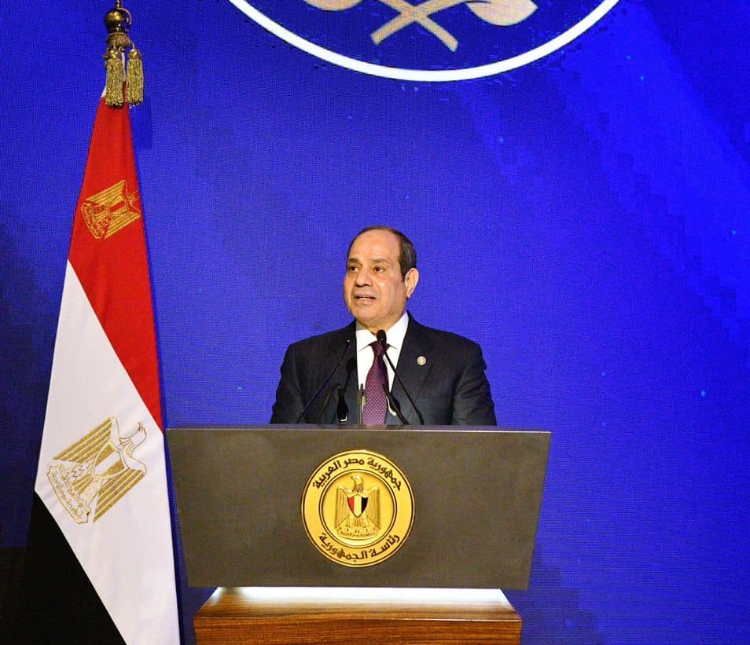In a recent address during the 73rd Police Day celebration on Wednesday 22 January, President Abdel Fattah All-Sisi discussed the pressing challenges posed by the US dollar crisis and its implications for Egypt’s economy.
He emphasized that the nation’s strategy should focus on reducing the import bill and enhancing production capabilities to meet the increasing demand for dollars.
All-Sisi outlined that the current economic situation is not merely a battle against the dollar itself but rather a struggle against the shortage of dollars necessary to fulfill the country’s needs.
With Egypt’s population approaching 120 million, the demand for imports—particularly for essential commodities like wheat and corn—has intensified to surpass local agricultural production. This shift has led to a reliance on foreign currency and increased importation, which All-Sisi described as a strategic challenge for the state.
During his remarks, he highlighted the historical context by noting that in the 1940s and 1950s, the demand for the dollar was significantly lower.
Al-Sis then stressed the importance of increasing domestic capacity to reduce reliance on imports, specifically mentioning the USD 20 billion (EGP 1 trillion) needed annually for petroleum products alone.
Moreover, the President reflected on the historical economic challenges Egypt has faced, including the burdens of debt that have accumulated since the 1967 war and subsequent conflicts.
He pointed out that while the country has made strides in development, it has also had to allocate substantial resources—approximately EGP 120 to 130 billion (EGP 2 billion)—to combat terrorism, which he noted was essential for national security.
Al-Sisi also addressed the impact of the Suez Canal on the economy, stating that while profits reached nearly USD 10 billion (EGP 503 billion) last year, they were affected by global crises, leading to a decrease in revenue.
On Thursday 26 December 2024, President Abdel-Fattah Al-Sisi and Suez Canal Authority chairman Osama Rabie revealed that Egypt lost nearly USD 7 billion (EGP 352 billion) in 2024 due to disruptions in navigational traffic caused by regional tensions, particularly attacks by the Houthis on vessels linked to Israel, the US, and the UK.
These attacks led shipping companies to divert to the longer route around the Cape of Good Hope, significantly impacting global trade through the canal, which traditionally accounted for 12 percent of it.
Despite this, as of June 2024, Egypt’s net international reserves (NIRs) rose to approximately USD 46.383 billion (EGP 2 trillion), an increase of USD 258 million (EGP 12 billion) from May 2024.
Foreign currency reserves slightly increased to USD 36.8 billion (EGP1 trillion), while gold reserves fell to USD 9.4 billion (EGP 473 billion). Despite significant debt repayments, the economy shows signs of recovery, with external debt down 4.4 percent to USD 160.6 billion (EGP 8 trillion).
Notably, net foreign assets in the banking sector surged to a surplus of USD 14.3 billion (EGP 719 billion), marking a significant turnaround after a two-year deficit.
Egypt has secured over USD 58 billion (EGP 2 trillion) in external financing commitments, including substantial pledges from the IMF, World Bank, and EU, to address its foreign exchange challenges.







Comments (0)